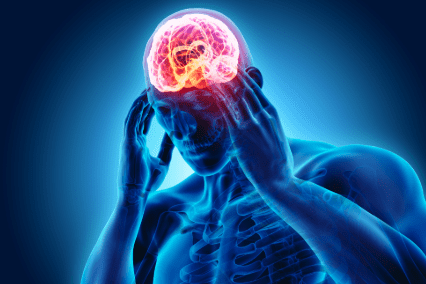The human body is an intricate network of systems, all working together to keep us alive and thriving. Among these systems, the kidneys play a critical role. Often overlooked, these small, bean-shaped organs are essential for keeping our blood clean and maintaining overall health. Understanding what happens when blood is cleaned by the kidneys offers insight into the remarkable processes that occur inside our bodies every single day.
The kidneys are located just below the ribcage on either side of the spine. Despite their small size, they filter an astonishing amount of blood each day—about fifty gallons in total. This continuous filtration is crucial because blood carries nutrients, oxygen, and waste products to every part of the body. While the nutrients and oxygen are delivered where they are needed, waste products must be removed to prevent harm. This is where the kidneys come into play.
When blood enters the kidneys, it flows through tiny filtering units called nephrons. Each kidney contains around one million nephrons, which act like microscopic sieves. These nephrons are composed of a glomerulus, a network of tiny blood vessels, and a tubule, a small tube that processes the filtered fluid. The glomerulus filters out waste, excess salts, and water from the blood, while retaining essential substances like proteins and blood cells. This process is both precise and delicate, ensuring that the body maintains the right balance of nutrients and fluids.
Once the blood is filtered, the kidneys perform a careful balancing act. They adjust the levels of electrolytes, such as sodium, potassium, and calcium, based on the body’s current needs. This balance is vital for proper nerve and muscle function, as well as for maintaining stable blood pressure. Without this regulation, even minor imbalances could lead to serious health problems. The kidneys also help control the volume of blood by deciding how much water to retain or excrete. When the body is dehydrated, the kidneys conserve water; when there is excess water, they remove it as urine.
The waste products and excess substances filtered from the blood are eventually concentrated into urine. This urine flows from the kidneys through the ureters and into the bladder, where it is stored until it is eliminated from the body. This process is not just about removing waste; it also helps prevent the buildup of toxins that could harm organs and tissues. Over time, the accumulation of waste in the blood could lead to conditions such as high blood pressure, heart disease, or kidney failure. By cleaning the blood, the kidneys act as guardians of overall health.
The act of filtering blood is closely linked with hormone regulation. The kidneys release hormones such as erythropoietin, which stimulates the production of red blood cells in the bone marrow, and renin, which helps control blood pressure. They also help convert vitamin D into its active form, which is essential for bone health and calcium absorption. These hormonal functions show that the kidneys are more than just filters; they are dynamic organs that influence multiple aspects of health.
Healthy kidneys depend on proper care. Hydration is one of the simplest ways to support kidney function. Drinking enough water helps the kidneys flush out toxins efficiently and maintain electrolyte balance. Nutrition also plays a role. Diets high in processed foods, salt, and sugar can place extra stress on the kidneys, while a balanced diet rich in fruits, vegetables, and lean proteins supports their filtering function. Avoiding excessive use of medications or substances that can damage the kidneys is also important for maintaining long-term health.
When kidneys work effectively, the body enjoys a state of balance and vitality. Blood that is thoroughly cleaned and regulated by the kidneys allows cells to function optimally, tissues to repair efficiently, and the heart to pump smoothly. Fatigue, confusion, and other signs of poor health are less likely when waste is removed properly, electrolytes are balanced, and hydration is maintained. The benefits of kidney function extend beyond mere cleanliness; they touch nearly every system in the body.
In situations where kidneys are compromised, the body experiences a cascade of problems. Blood may become polluted with waste, fluid may accumulate, and blood pressure may rise. Symptoms like swelling, fatigue, and confusion can appear. Chronic kidney disease or acute kidney injury can lead to serious complications if not addressed. This is why regular medical check-ups and awareness of kidney health are essential. Early detection and lifestyle adjustments can prevent damage and ensure the kidneys continue their life-sustaining work.
It is fascinating to consider that every drop of blood in the body passes through the kidneys multiple times each day. This ongoing cleaning process is silent, efficient, and vital. Most people do not think about their kidneys until problems arise, but their function is a cornerstone of health. Appreciating this process encourages habits that support kidney longevity, such as maintaining hydration, eating healthily, avoiding excessive salt, and monitoring blood pressure.
In summary, the cleaning of blood by the kidneys is a complex, ongoing process that maintains balance in the body. The kidneys filter waste, regulate electrolytes, control blood pressure, support red blood cell production, and even activate vitamins. All of this occurs without us noticing, yet it profoundly affects our energy, well-being, and overall health. Understanding what happens when blood is cleaned by the kidneys allows us to recognize the value of these remarkable organs and motivates us to care for them. Proper kidney function is essential for life, and supporting these vital organs ensures that the body continues to operate smoothly, keeping us vibrant and healthy for years to come.






